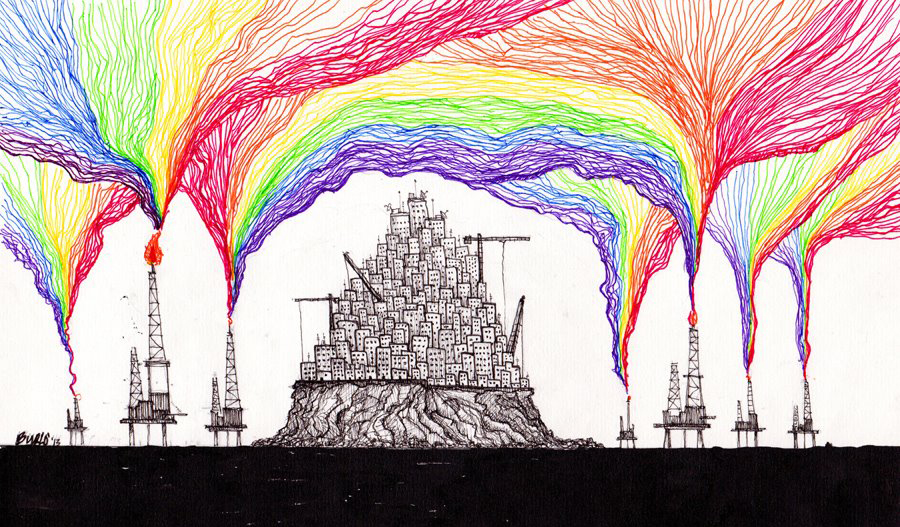Written by JD Farrugia (Friends of the Earth Malta & Young Friends of the Earth Europe)
I’m no climate change expert. I know a thing or two about campaigning, about fisheries, even a tiny bit about food and agriculture. Climate change has floated around the periphery of my zone of interest as an environmental campaigner for the past few years. But how can I call myself a true campaigner, a true “friend of the earth” without knowing certain keywords and catch phrases like “the business as usual model” or permafrost? Maybe I haven’t paid more attention for the same reasons that everyone else hasn’t.
Over the past few months, two reports were published which should be a real turning point for climate change governance. First the Intergovernmental Panel on Climate Change (IPCC) launched their fifth assessment report which stated that they’re 95% certain that this climate change business is all our fault, carbon dioxide levels are at the highest they’ve been in about 800,000 years, sea levels are set to rise steadily, and that the ice sheets are melting.
Just when you thought it couldn’t get any grimmer, NASA (previously known for being very conservative on climate change issues) partly funded a study which found that civilisation as we know it is set to collapse in the coming decades because of the way we’ve been using resources and unevenly distributing our wealth.
Now I saw all this. I read a few articles here and there and listened to some of my peers comment about it. The Maltese public and, to a certain extent, the media seemed blissfully ignorant about the whole thing. That is until an article was published in a popular newspaper a few weeks ago.
A local journalist, Caroline Muscat, spoke to Prof. David Attard (of the Maritime Law Institute) who said that the near 1m rise in sea level will turn most of Malta into a giant wetland. Martin Galea De Giovanni, Friend of the Earth Malta’s chairperson, said that “this is now becoming less about saving the cute polar bear from extinction and more about saving our own skin”. This article got people’s attention… even if it was only until a video of a cat saving a baby popped up on their news feed. A country that seemed totally oblivious to the UN climate talks happening in Bonn at that very moment was briefly interested in Climate Change because it seemed like they might have to kayak to work sometime in the not so distant future.
I found this quite interesting. Could this be a clue into how to get people’s attention when talking about climate change? Are a few rendered images of Maltese seaside towns submerged under blue areas enough to make people care? And even if they do care… does it matter? Being an ex-colony of a plethora of civilisations up until 1964 when we gained independence from the British, we tend to possess the skill of externalising our responsibilities onto our rulers or, in today’s case, the government. The environment is not our problem; it’s the government’s problem.
And what is the Maltese government doing about climate change? Their actions are decidedly mixed. While they claim to be drafting new climate change legislation, they’re shifting our main source of energy from oil to natural gas – another non-renewable resource. That said, they’ve promised to reduce greenhouse gas emissions by 40% by 2020, although considering that the country only obtains 1.4% of its energy from renewable sources, that target seems ambitious.
A quick look at how some of the previous Maltese MEPs voted with respect to climate change is also quite frightening. Some voted against phasing out fossil fuel subsidies, against increasing the supply of renewables, and against increasing emission reduction targets to 30% by 2020.
According to a recent Eurobarometer survey, only 8% of Maltese citizens rated climate change as one of the most important issues facing the EU, which sounds bad, but we’re doing better than Europe as a whole: just 4% of Europeans considered the environment, climate, and energy to be a main concern at national levels.
Simply put, climate change is boring, it’s not newsworthy, and most people don’t feel the need to panic. Even if campaigners were to make people care about climate change, what could the average person really do to make a difference? Do we, as campaigners, care if people feel strongly about climate change? We’re too busy targeting politicians and policy makers after all. These are the decision makers and these are the people who can ultimately make a difference.
But maybe the reason why they’re not listening to us is that we’re standing alone like an annoying Chihuahua trying to hump everyone’s legs. Big businesses have got money backing them and we need the people. We need the average citizen to stand beside us so that governments have to listen to us or miss out on being re-elected. To do this, we need to find innovative ways of helping people visualise the problems of climate change, show them how it’s relevant to them, and how they stand to gain by joining us.
Most importantly, we need to go beyond just awareness-raising, and give people the means to be active in the fight against climate change – and to make this shift in behaviour as easy as possible. I’m not saying I have the answers, but maybe it’s time we start asking the right questions.

